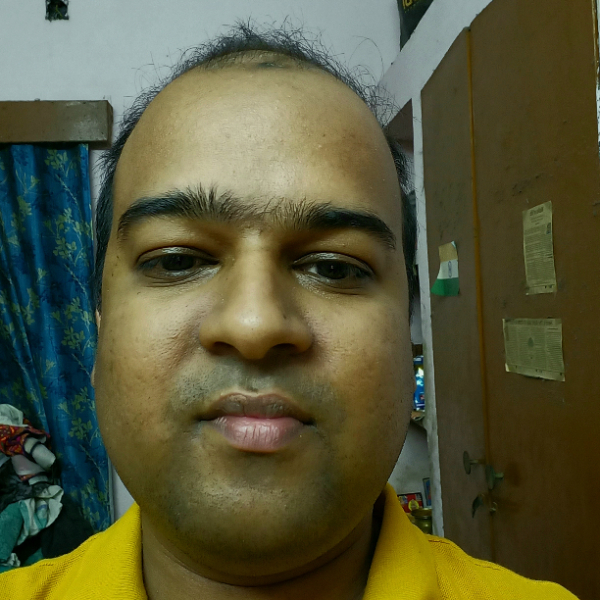Free Press in India – Myth or Reality?
When the power structures of a region don’t change for a long period of time, they tend to control every aspect of its public life. In such a case the role of the press, which is often termed as the fourth estate of democracy, changes into a subservient one. Voices of dissent and constructive criticisms are labelled with demeaning terms, with an environment of fear propagated against them. The media in such a situation turns into a puppet, parroting praises for the ruling establishment and kowtowing to their perspectives. Issues of importance are side-lined and excluded, and trivial matters are highlighted again and again. This seems to be the indication of the press freedom index which ranked India badly in recent times. So, how free is press in India? Are journalists and media persons allowed to ask difficult but important questions? Or are they being swept away by propaganda? As we celebrate World Press Freedom Day on 3rd May, My City Links deep dives into this issue which plays a leading role in shaping public opinion.
Press Freedom – Different Journalists’ Take
Thomas Jefferson, one of the founding fathers of American democracy, famously stated that if he had to choose between a government without newspapers and newspapers without governments, he wouldn’t hesitate to choose the latter. As the third US President, he recognised the critical responsibility of the press in shaping public opinion, and wanted it to have the freedom necessary for doing so. Contrast this with the recent incidents of attacks on journalists in Odisha. Jyotiranjan Mohapatra, an Odia TV journalist was attacked by miscreants in Bhubaneswar with a sword on 10th February, 2024, due to which he received severe head injuries. Similarly, another journalist named Saroj Jena was attacked in Bhubaneswar on 18th April, 2024, after which he sustained critical injuries. These incidents beg the question as to which are the forces that are irked by the freedom of the press in performing its duties. To get a clearer picture, My City Links spoke to senior journalists Rajaram Satapathy and Sarada Lahangir about the issue.
Rajaram said that these attacks on journalists are apparently criminal activities and not targeted ones on journalists. But he highlighted that in the past many journalists in Odisha have faced false cases and have been imprisoned. This, he said, is still continuing. About press freedom, Sarada Lahangir informed, “Even though it is not written so anywhere in the constitution, still the media is considered the 4th pillar of democracy. The main role of the media is as a watchdog of the society. Press should be free, it should be under no pressure.” While Sarada opined that there is no simple answer to whether there is press freedom in India or not, Rajaram was quick to reject the publications of press freedom index as a tendentious one.
“I don’t think that this is a genuine report, because even countries where there is no democracy are faring better than India. I feel as far as the centre is concerned there is no argument to support the claim that press freedom in India is not there”, stated Rajaram Satapathy.
How press freedom is being curtailed?
Sarada Lahangir expressed the view that media used to be a lot more balanced back when she started journalism. She said, “I often try to compare the situation with back when I started journalism. I have had a 30-year career in the press. I remember, in my initial days, there was no pressure on my organisation to do certain types of stories. There was a standing rule in the news agency where I used to work, that you will have to file a balanced story. When you accuse someone, then you have to take that person’s perspective to have a balanced story. But in today’s media, I don’t feel that freedom which we used to feel in our initial days. During my initial days in the media, there was hardly any political influence on the media. But these days there is political influence on media houses that are putting pressure on their own interests.”
Throwing light on the current scenario, Rajaram explained, “Whatever control over press we see is from the state government’s side rather than the central government. If we take the example of Odisha, if you see the newspapers and websites, you will see that they are not showing the real picture of how the government is being run. They are only printing the press releases of different government organisations and are misleading the public. Press’s responsibility is not to criticise alone, but to discuss the issues of importance, so that the general public can know the complete picture of government policies.”
Rajaram added that the most important rule in journalism is to ask questions. But these days one can mark that as there is no scope of asking questions for the press, the public is being kept in the dark. The opportunities to ask questions has reduced completely. For instance, we have never seen Odisha's Chief Minister speaking to journalists in the past 24 years of his rule. The Secretariat, the Vidhan Sabha and public meetings are all restricted for journalists. The public meetings are characterised by video releases by the authorities as journalists are barred entry to the place. Rajaram expressed the opinion that all television channels and newspapers are paid crores of rupees by the state government for advertisements. As a result, the media house owners are not allowing journalists to even discuss the state government’s policies. Also, these days, reporters are not going to the ground to collect information. Whatever information they get from television, they are using it and adding a few fictitious facts for compiling a 300-400-word news article along with pictures. So the tradition of going to spots and meeting people is no longer found.
Contradicting Rajaram Satapathy’s views of press freedom on the central government’s behalf, there are voices of disagreement by many journalists. My City Links got in touch with a journalist who wishes to stay anonymous fearing action by the centre. The journalist said, “I used to work for a private news agency in Bhubaneswar. When Covid hit, our ad revenues were affected as it is. But the impact was greater due to the fact that our agency was blacklisted due to being “anti BJP”, which led to a lot of companies not providing us ads. Which finally resulted in our salaries being deducted to almost half of what we used to get.”
Adding further the journalist voiced disagreement that there is press freedom in India, “This happened in a state where there is BJD’s governance. So one can guess what would be the scenario of BJP ruled states. Press freedom of journalists has been reduced to a joke. And the fact that I am having to give this byte in anonymity itself is proof of that.” Likewise, My City Links was not able to get bytes from some other apprehensive journalists working in reputed national news agencies who faced similar fate because of their views. They refused to provide us any information because they were too scared to. According to them, they’re already under a lot of scrutiny, not just in their professional lives but also on what they opine in their personal life via social media handles such as Twitter, now X.
Free Speech and Broadcast Services (Regulation) Bill
Breaking the monotony of traditional media, the online media has emerged as a platform where a whole spectrum of perspectives have become available for the public. It is a platform sans regulation, hence is free, independent and at times vile as well. The central government’s proposed Broadcast Services (Regulation) Bill seeks to create regulations to all such platforms as a law that is up-to-date with the changing landscape of news and information broadcasting. Though the central government had given the option of suggesting feedback to the bill from the public, the bill has met criticism from different sections of online media, with the common fear being that it will give too much government control and stifle free speech.
Rajaram Satapathy is of the view that as the bill has not been enforced it is premature to say anything about it. Sarada Lahangir feels that the bill is a mixed bag. She said, “These days we see the negative influence of an unregulated online media. So, I think if the Broadcasting Services Regulation Bill proposed by the centre tries to regulate this then it is a welcome step. Online media is fast but it is sometimes fake and without credibility. They sometimes use foul language and cheap tactics to increase their viewership. This needs to be regulated. We will have to see whether this bill supports press freedom or hampers it. On the positive side regulations will deal with these types of online media aberrations, on the negative side it could lead to excessive government control.”
Limitations of Press Freedom
We asked both the senior journalists about the limitations of press freedom. Sarada Lahangir expressed her view, “Sometimes as a journalist, we think that we can take anyone’s byte, photo and information. We think that this is our right. But that is not true. We have as much right as an ordinary citizen. We have access to certain places for news reporting. But there are limitations to this freedom of press.”
Rajaram replied that even press freedom has a line that it should not cross. The journalists cannot write down whatever thing that comes to their mind for a news story. What many journalists are forgetting today is that they need to have a certain decency of language. Their only responsibility is to report news. He/She doesn’t have the right to decide whether the news topic is good or bad. That is up to the public to decide. It is important not to make sweeping statements, and jump to quick conclusions. People should be allowed to form their opinion based on facts. The public is also educated enough to understand. “A sensitive example in case of press freedom is that in cases of news reporting of sexual abuse, the news agencies should not reveal the identity of the victim. They should be careful to not even provide clues or hints of the person’s identity”, concluded Rajaram.

Author: Swastik Tripathy
Swastik is a passionately curious explorer who has a penchant for a diversity of written self-expression.
Read more from author


